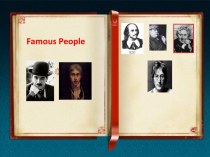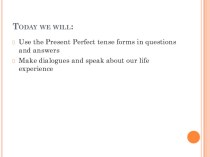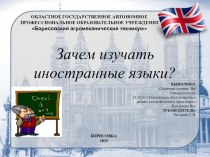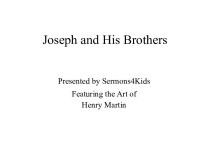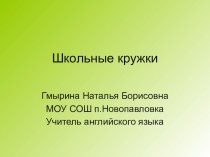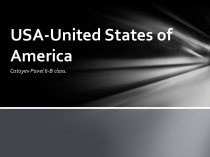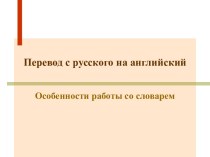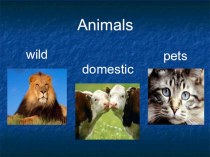- Главная
- Разное
- Бизнес и предпринимательство
- Образование
- Развлечения
- Государство
- Спорт
- Графика
- Культурология
- Еда и кулинария
- Лингвистика
- Религиоведение
- Черчение
- Физкультура
- ИЗО
- Психология
- Социология
- Английский язык
- Астрономия
- Алгебра
- Биология
- География
- Геометрия
- Детские презентации
- Информатика
- История
- Литература
- Маркетинг
- Математика
- Медицина
- Менеджмент
- Музыка
- МХК
- Немецкий язык
- ОБЖ
- Обществознание
- Окружающий мир
- Педагогика
- Русский язык
- Технология
- Физика
- Философия
- Химия
- Шаблоны, картинки для презентаций
- Экология
- Экономика
- Юриспруденция
Что такое findslide.org?
FindSlide.org - это сайт презентаций, докладов, шаблонов в формате PowerPoint.
Обратная связь
Email: Нажмите что бы посмотреть
Презентация на тему по английскому языку на тему Adverbs
Содержание
- 2. Kinds
- 3. Forms and UseThe formation of adverbs with
- 4. Forms and UseAdjectives ending in „ly“: daily,
- 5. Forms and UseSome adverbs have a narrower
- 6. Adverbs and adjectives with the same form
- 7. Comparative and Superlative Adverb Forms
- 8. Position of Adverbs
- 9. Position of Adverbs
- 10. Position of Adverbs
- 11. Position of Adverbs
- 12. Position of AdverbsAdverbs of Frequency – Exceptions:
- 13. Position of Adverbs
- 14. Position of Adverbs
- 15. Position of Adverbs
- 16. Exercises
- 17. Exercises
- 18. Find More
- 19. Скачать презентацию
- 20. Похожие презентации
Kinds
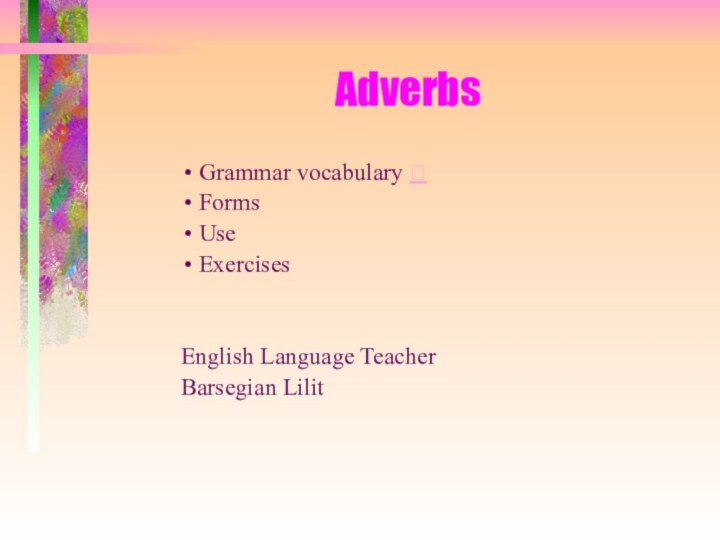
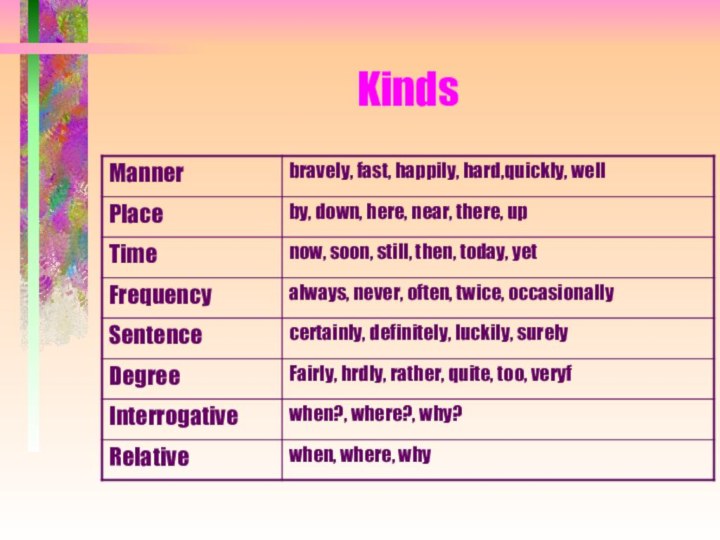
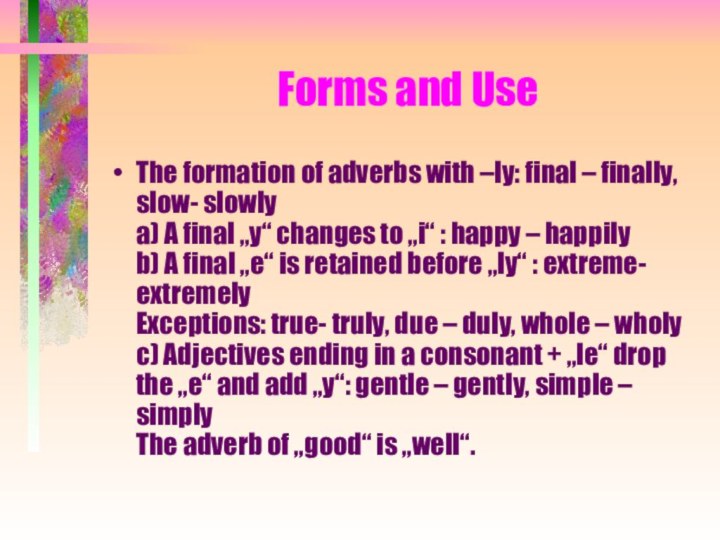
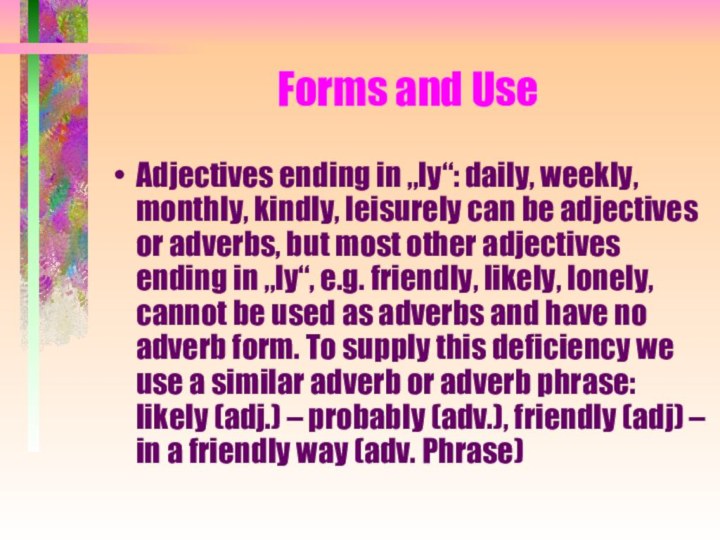
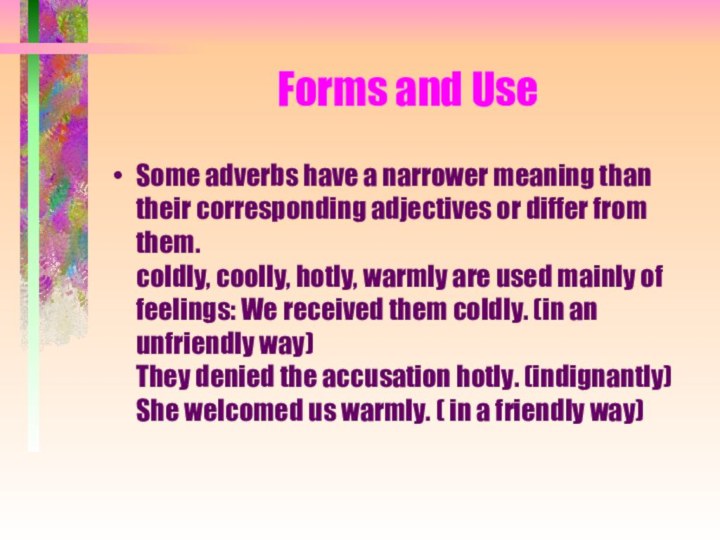
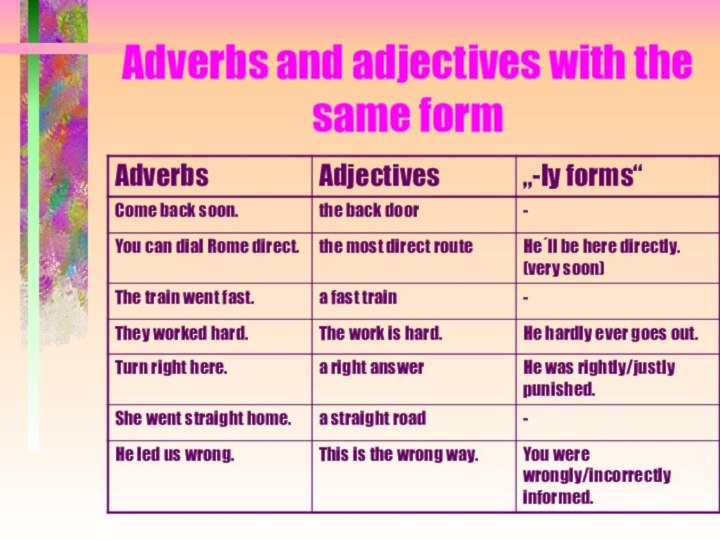
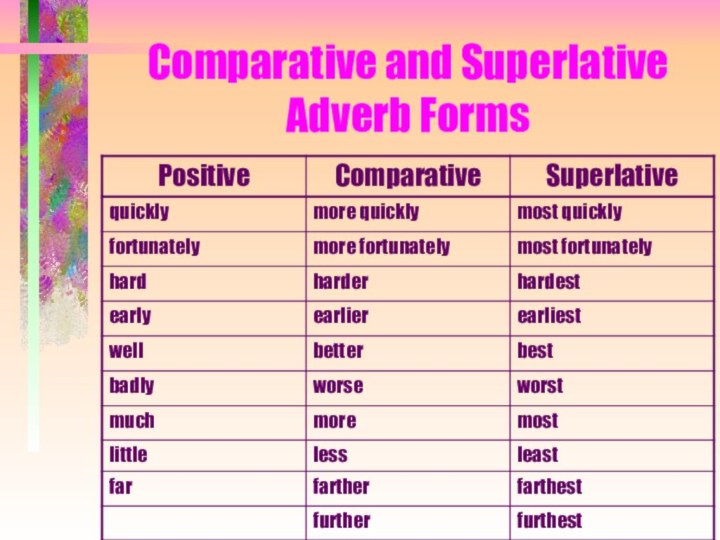
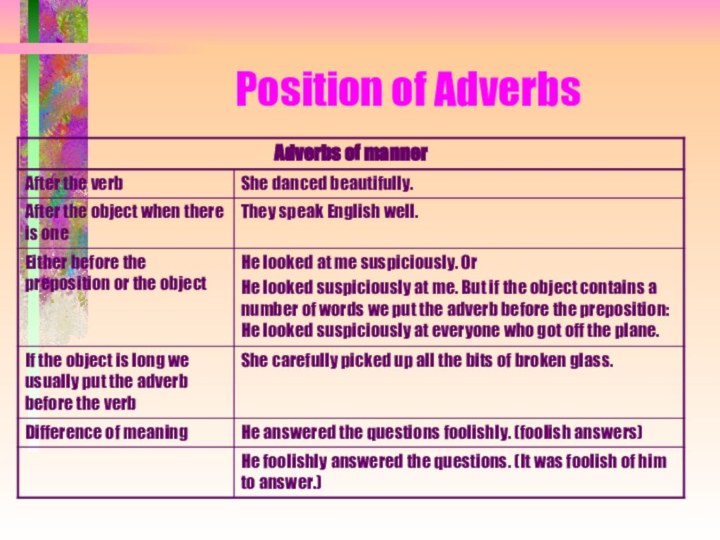
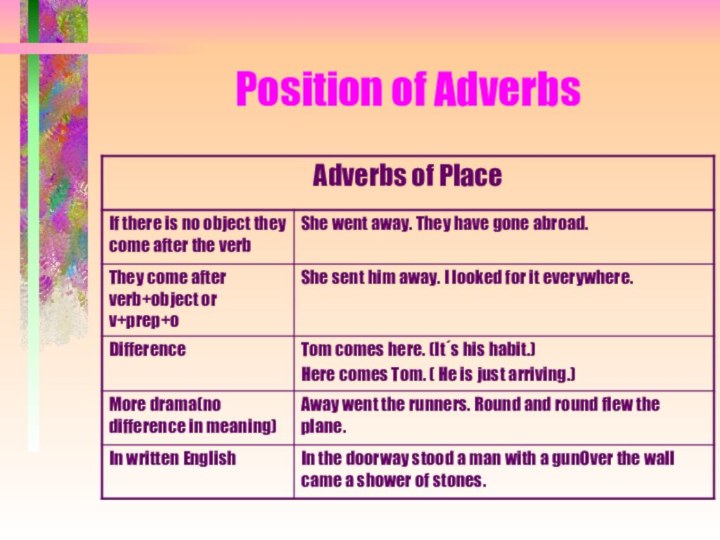
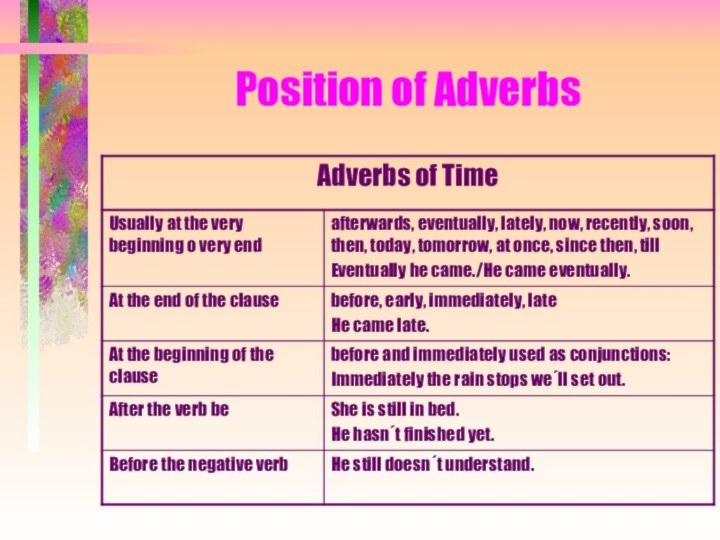
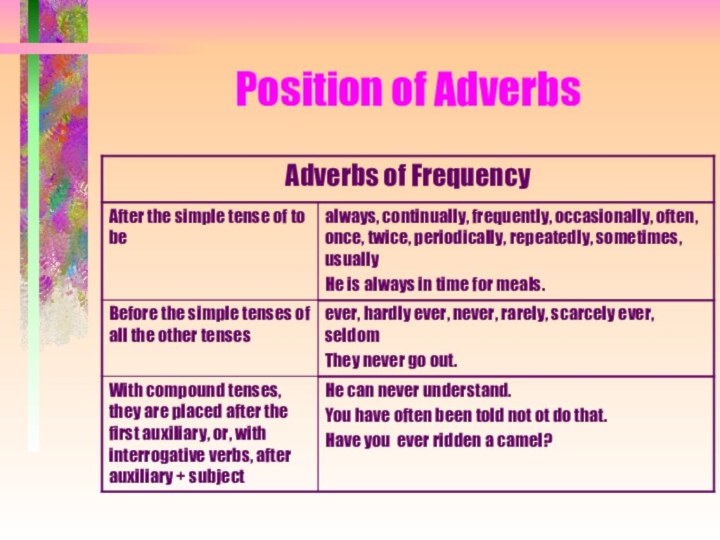

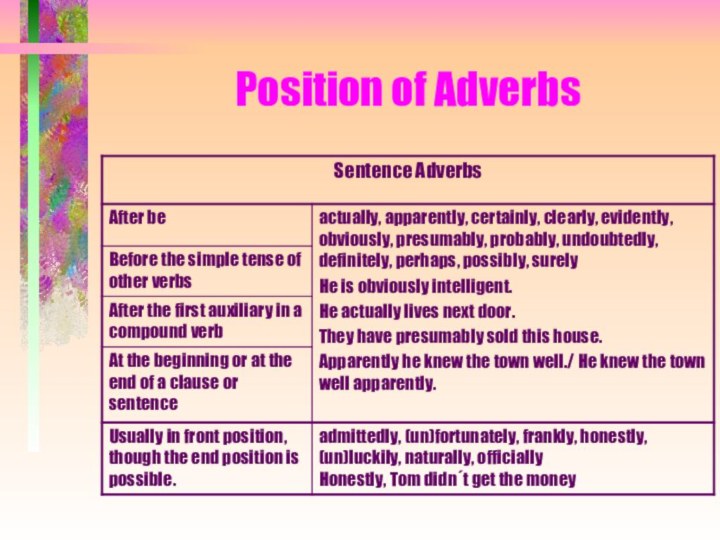
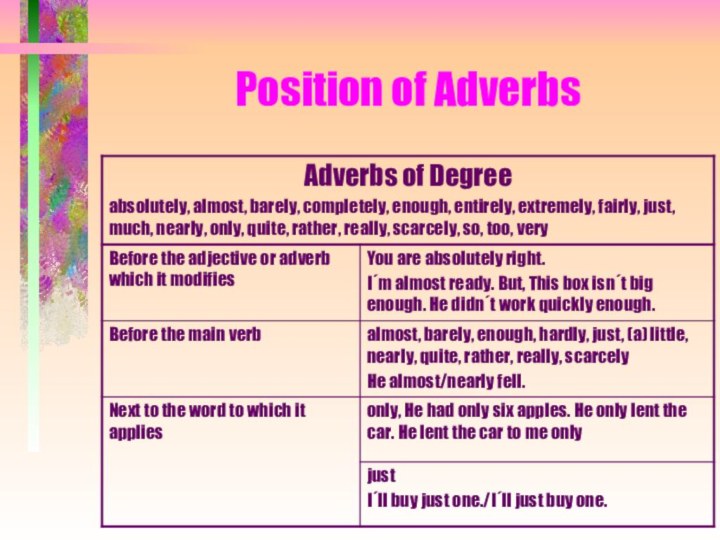
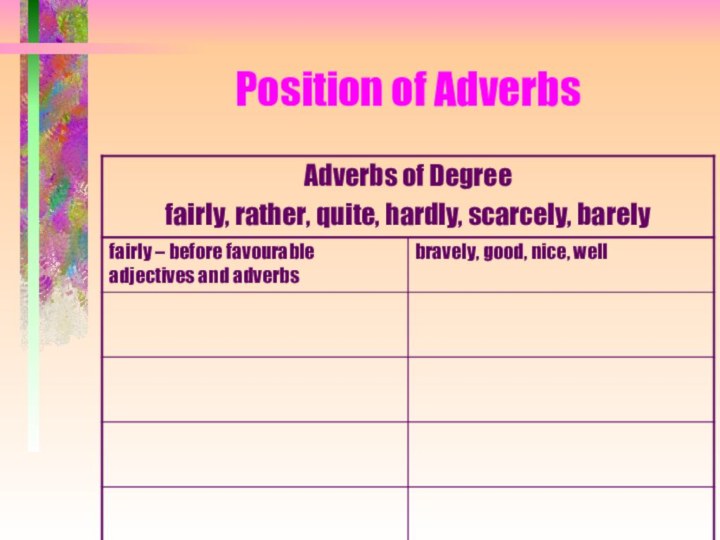
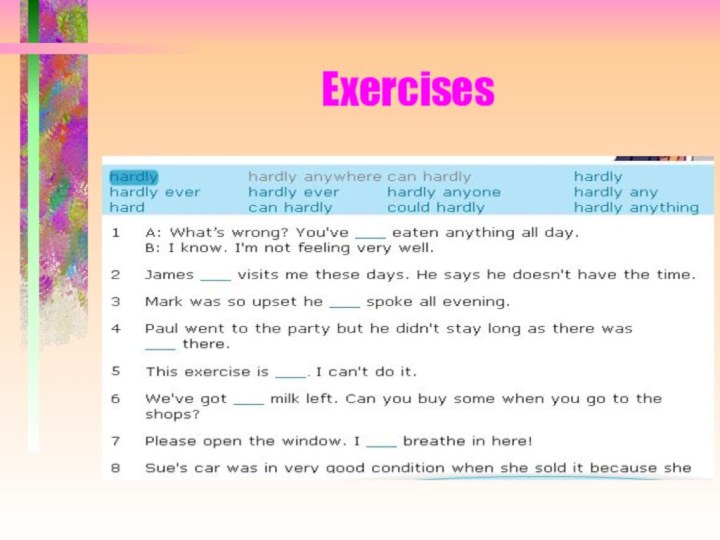
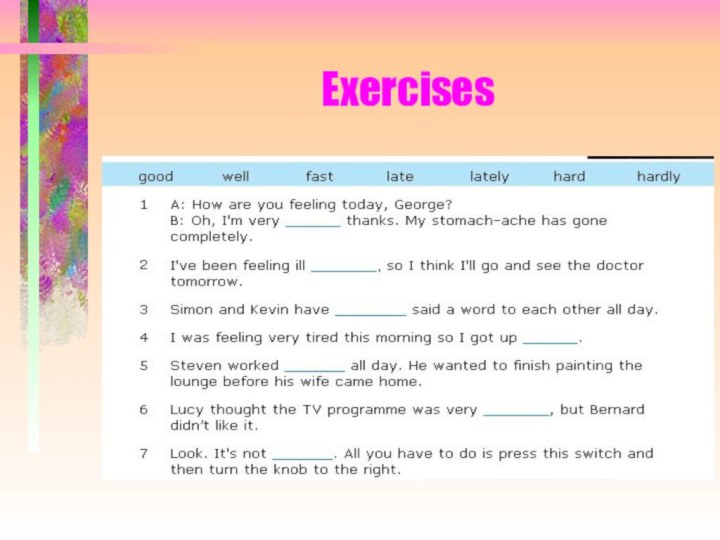


Слайд 4
Forms and Use
Adjectives ending in „ly“: daily, weekly,
monthly, kindly, leisurely can be adjectives or adverbs, but
most other adjectives ending in „ly“, e.g. friendly, likely, lonely, cannot be used as adverbs and have no adverb form. To supply this deficiency we use a similar adverb or adverb phrase: likely (adj.) – probably (adv.), friendly (adj) – in a friendly way (adv. Phrase)
Слайд 5
Forms and Use
Some adverbs have a narrower meaning
than their corresponding adjectives or differ from them. coldly, coolly,
hotly, warmly are used mainly of feelings: We received them coldly. (in an unfriendly way) They denied the accusation hotly. (indignantly) She welcomed us warmly. ( in a friendly way)
Слайд 12
Position of Adverbs
Adverbs of Frequency – Exceptions:
a) used
to and have to prefer the adverb in front
of them: You hardly ever have to remind him.b) Before auxiliaries when they are used alone: Yes, I usually can. c) hardly ever, never, rarely etc. can be put at the beginning of the sentence, but the inversion of the following main verb is necessary: Hardly ever did they manage to meet unobserved. d) hardly ever/scarcely ever, never, rarely, seldom are not used with negative verbs
